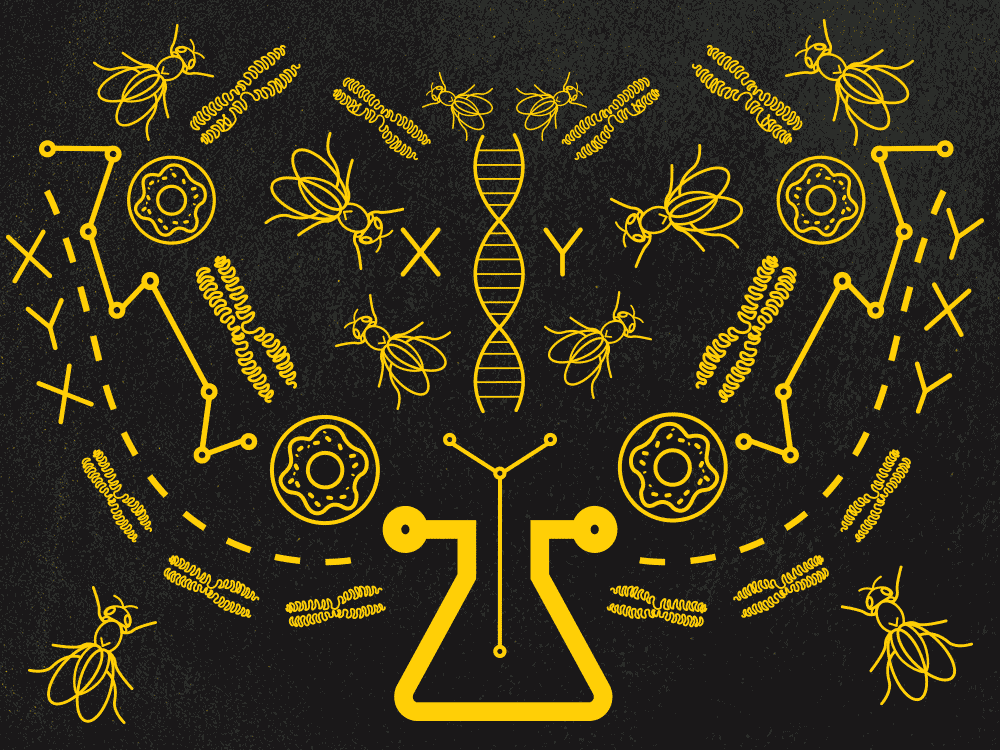Think of scientists in popular culture and what might come to mind is an evil genius who stirs chemical cocktails or grants villains superpowers. Or a crazy doctor who cooks up viruses to destroy the world. Or maybe a socially awkward nerd hiding behind impersonal objectivity and a pair of broken glasses.
Of course, real, live scientists rarely fit the fiction. They find beauty in nature, share passion and excitement about research, and obsess over finding solutions to problems in the world.
How to Science is a new podcast from the University of Michigan’s College of Literature, Science, and the Arts that insists on exploring beyond the beaker and past stereotypes to see how science is human, beautiful, and accessible. It’s a peek behind the curtain at how scientists are made, so any listener can see that they can science, too.
Each episode features a conversation between two scientists, revealing the people under the lab coats—not just the mad scientist movie villains we might be used to.
Be curious! Have a listen.

What do your ears crave? Let us listen to you with a quick click through this seven-minute survey.
Visit the How to Science website for more info and other episodes as they’re released.
View the full Trisha Wittkopp interview transcript.
Highlights from This Episode
- 3:28 – “Before starting my position, I read a lot of advice books about how to set up the lab. They talked about having a lab motto, and the one I came up with was, ‘Science is fun.’”
- 6:40 – “When somebody has a significant step forward on a project—something that might make a figure in a paper or something—they bring in donuts, and we all enjoy the donuts and celebrate. And then the larger milestones—like a grant, or a fellowship, or someone’s first first-author paper—those get recognized with champagne. We have a collection of champagne bottles as a visual reflection of the lab’s accomplishments.”
- 8:53 – “All the cells in the body have the same DNA, and it’s fascinating to think about how you create different structures. Why is an eye cell an eye cell, and a heart cell a heart cell, and a blood cell a blood cell—when they all have the same DNA?”
- 16:40 – “The geneticist core in me says, ‘What’s the genetic basis of that?’ The answer to the cell-type question comes down to gene regulation. Each gene has what I describe as like a dimmer switch that will control your lights. It can be on, off, or on to different degrees. And that’s true for every individual cell. So the combination of cells that turn on a gene, and how much of that gene they produce, are largely what gives a cell its properties.”
- 29:22 – “I decided that I wanted to know from students, for virtually every topic and every lecture, what was working and what wasn’t. So I wrote this completely anonymous survey asking, ‘What was the hardest thing to understand today? What was the most interesting? How was the time spent on these various topics?’ The first time I taught, there were 300 students. Wow. I learned what I was not doing right, quickly.”
Scientist Bios
How to Science host Monica Dus is a professor in LSA’s Department of Molecular, Cellular, and Developmental Biology (MCDB) who studies how the brain responds to the presence and absence of sugar. She wants to figure out how neurons sense and respond to the nutrients eaten as food. Her research relates to feeding behavior, energy balance, physiology, and obesity. She loves her three dogs, whose names are Cupcake, Sprinkles, and Brioche.
Learn more about Monica Dus’s research.
This week’s guest, Trisha Wittkopp, is a professor in MCDB and in LSA’s Department of Ecology and Evolutionary Biology (EEB). She’s a geneticist to the core who wonders deeply about how changes in genes produce differences in living things.
Learn more about Trisha Wittkopp’s research.
View photos from the Annual Wittkopp Lab Olympics, charter fishing with the lab, and other fun.
Related Links
- “Listening to the Animal Orchestra”
- Learn About Supporting the Department of Molecular, Cellular, and Developmental Biology
- Learn About Supporting the Department of Ecology and Evolutionary Biology

